Halal Brow Gels Hold Shape Without Sticky Residues
flareAI
Imagine a bustling Dubai executive slipping into her midday prayer, her perfectly sculpted brows unmoving amid the desert swirl. No clumpy residue, no frantic touch-ups just effortless poise from a halal brow gel that aligns purity with precision. In the dynamic realm of clean beauty, where cultural devotion intersects with daily demands, these innovative formulas are reshaping rituals across sweltering Singapore streets and expansive Saudi markets. As halal brow gels hold shape without sticky residues, they embody a transformative force, merging ethical integrity with unyielding performance for women who refuse to compromise.
Many women feel trapped by makeup that hides flaws but risks irritation and hidden toxins. This daily choice weighs heavily, dimming confidence over time. Liht Organics invites you to embrace beauty differently. With up to 90% USDA-certified organic ingredients, our vegan, cruelty-free products deliver vibrant color and gentle care, letting you glow with confidence, knowing your skin is nurtured, not compromised. Shop Now!
The New Frontier of Halal Clean Beauty
Leading this charge is Liht Organics, a trailblazing Singaporean brand that fuses unwavering ethics with superior functionality. Born from founder Nerissa Low's personal triumph over persistent acne and reactive skin, Liht Organics delivers vegan, cruelty-free cosmetics brimming with up to 90 percent USDA-certified organic components. Their brow gels, for instance, apply with a whisper-soft touch, securing every hair in place for extended wear while evading the stiff, unnatural grip of traditional options. The brand's bold claim rings true: these products are formulated to be "safe enough to eat," deliberately excluding irritants like parabens, synthetic silicones, and carmine in favor of botanical waxes and potent antioxidants that actively support skin health.
What was once a fringe concern has surged into the mainstream of international cosmetics. Halal-certified beauty products now form a vital artery in the global industry, adhering strictly to Islamic tenets by omitting alcohol, porcine byproducts, and any form of animal exploitation. This compliance doesn't dilute their appeal; rather, it amplifies it, providing the bold coverage and endurance essential for modern lifestyles. Particularly resonant in regions like the United Arab Emirates and Saudi Arabia, where ablution practices necessitate lightweight, non-occlusive textures, these gels emerge as indispensable allies. Liht Organics is at the vanguard, seamlessly transitioning from local platforms like Shopee.sg to prominent Middle Eastern outlets such as Namshi.com, demonstrating that pristine formulations can thrive in both tropical humidity and arid expanses.
Broaden the lens, and the brow gel sector reveals robust expansion. Valued at USD 259.74 million in 2024, it advanced to USD 274.85 million in 2025, with projections indicating a climb to USD 407.98 million by 2032, propelled by a compound annual growth rate of 5.80 percent. This evolution marks brow gel's ascent from basic grooming tools to pivotal elements in sophisticated beauty protocols, driven by a heightened pursuit of meticulous styling and individual flair. The sector now features multifaceted blends that marry subtle hues with durable fixation, responding to calls for items that enhance appearance alongside dermatological advantages through elements like nurturing plant extracts, fine fibers, and versatile shades.
Liht Organics exemplifies this progression, prioritizing transparency and efficacy in every tube. Their gels not only tame but transform, infusing arches with subtle nourishment that combats environmental stressors ideal for the sensitive complexions that inspired the brand's inception. As consumers worldwide prioritize multifaceted benefits, such innovations underscore a pivotal truth: beauty can be both performative and protective, especially when rooted in organic halal principles.
Emerging Trends in Halal and Organic Cosmetics
Dive into the feeds of Instagram or TikTok, Liht Organic's vibrant arenas, and the momentum becomes palpable. In Southeast Asian hubs like Malaysia and Singapore, the fusion of vegan and halal aesthetics dominates, drawing crowds to Lazada.sg for brow gels touting uncompromising pigmentation and staying power. This synergy stems from a rising cohort of Muslim consumers demanding unfiltered insight into compositions, from synthetic-free jojoba alternatives to rice-derived emollients that hydrate without heaviness. Venturing to the Arabian Peninsula, UAE enclaves such as Gold Apple exude an air of opulent adherence, where patrons abandon silicone-laden pomades for organic substitutes that prevent pore congestion beneath modest attire.
The momentum extends to India, where Amazon.in overflows with imports championing unadulterated beauty, and Australia, whose sustainability advocates revere USDA certifications as emblems of authenticity. At its core lies a collective uprising against covert contaminants in legacy cosmetics. Halal validation transcends mere formality; it serves as a bulwark against dubious elements like carmine, sourced from cochineal insects, and rendered animal derivatives, harmonizing with the escalating embrace of botanical-centric purity. Medical skin experts endorse this trajectory, praising the gel's bounty of non-pore-clogging flora that calm rather than inflame, particularly beneficial for those with histories of breakouts akin to Low's.
Empirical evidence underscores the surge. The worldwide halal cosmetics arena reached USD 47.76 billion in 2024, on track for USD 53.12 billion in 2025 and soaring to USD 115.03 billion by 2032, fueled by an 11.67 percent compound annual growth rate.Asia Pacific commands a commanding 64.07 percent of this domain in 2024, bolstered by titans like India and Malaysia, nations where a majority pursues authenticated essentials. Non-Muslim adopters are increasingly captivated by the inherent "halal premium" of security and ecological harmony. Notably, the American Halal Foundation documented a 132 percent escalation in certification pursuits for aesthetic and hygiene items, a pattern anticipated to persist through the coming ten years.This uptick reflects the skin's status as our largest organ, compelling rigorous ethical and moral scrutiny in selections a stance profoundly justified.
Halal's scope delves beyond evasion of taboos. Bans encompass porcine elements, carrion, and intoxicants eschewing ethanol in pigmentation, collagen from suspect origins.Innovative alternatives abound, mirroring vegan paradigms, though sans-alcohol recipes pose manufacturing nuances for scents or pandemic-era sanitizers, igniting debates in locales like Malaysia. Holistically, halal cosmetics encompass tailored solutions for Muslim women's unique requisites, spawning breakthroughs like porous enamels permitting ablution sans removal exemplified by Inglot's O2M or BCI's H variants friction-mitigating rinses for veiled tresses (Unilever's Sunsilk Hijab, Safi's Shayla), and swift-seep lotions for hijab-clad visages (Unilever's Pureline Hijab Fresh). Integral to this is a pristine supply continuum, spanning sourcing, fabrication, research, encasing, warehousing, conveyance, and dissemination.
These trends illuminate a sector maturing beyond compliance into cultural confluence, where Liht Organic's organic halal brow gels stand as beacons of accessible excellence.
Real-World Applications and Market Adoption
Consider the archetype of a Riyadh-based consultant navigating high-stakes negotiations; her Liht gel ensures brows remain impeccably aligned through fervent discussions and ritual pauses, its vaporous hold impervious to perspiration. In Singapore's relentless mugginess, corporate trailblazers superimpose tinted iterations over faint lines, yielding a seamless, awakened allure. This is ingenuity incarnate: adhesion that withstands moisture, compositions attuned to purification rites.
Commerce mirrors this uptake. Singapore's The Green Collective showcases Liht amid artisanal clean lines, enticing inquisitive patrons to probe purity quotients. In the UAE, Faces.ae and Namshi.com orchestrate dedicated halal niches where Liht eclipses mass-market foes in acclaim for "flawless adhesion sans stiffness." Amazon.ae registers surges amid promotions, as diaspora from India to Australia procure assortments for communal use. Fading from obscurity, these gels command prime positioning, affirming organic halal's prowess against entrenched titans.
The proliferation spreads contagiously. Digital tastemakers illustrate expedited regimens on short-form videos stroke, secure, captivate amassing engagement from Penang to the Hejaz. For those balancing piety and panache, it heralds emancipation: cosmetics venerating observances without forfeiting finesse. Liht's bicoastal genesis in Singapore for regional agility, USA for oceanic reach guarantees timely replenishments, provenance-secured from cultivation to application, forging confidence via authenticated elements.
Adoption spans demographics, from Gen Z explorers in Malaysian bazaars to mature professionals in Australian ateliers, all unified by a quest for beauty that bolsters rather than burdens. Liht's gels, with their adaptive tints and fortifying serums, exemplify how market penetration fosters broader acceptance, turning skeptics into stalwarts.
Key Challenges and Limitations
Yet, the path harbors intricacies. Procuring botanical fixatives compliant with halal, vegan, and USDA rigors constitutes a logistical ballet, exacerbated by trade barriers inflating expenses on Indo-Pacific flora.Regulatory labyrinths compound this, with halal endorsements from disparate entities alongside organic validations, compelling Liht to traverse transnational inspections. Saudi edicts brook no alcoholic traces, conflicting with humectant necessities; Malaysia permits traces up to 0.5 percent, yet uniformity remains elusive.
Consumer skepticism persists as a formidable foe. Doubts arise "Does this truly achieve 80 percent organic integrity, or is it veneer?" fueled by lingering fallacies: halal confined to edibles, organics deemed lackluster in longevity. Liht rebuts via exhaustive disclosures and origin narratives, yet enlightenment endures as a marathon. In India's claim-saturated arena, substantiating edibility demands vivid tutorials over assertions. Such impediments, though taxing, hone resilience: each surmounted doubt cultivates deeper allegiance, fortifying brand devotion.
Moreover, scalability tests supply chains, as surging demand strains ethical sourcing without compromising quality. Liht navigates this by partnering with vetted growers, ensuring every batch upholds the triad of purity, performance, and principle a model that, while challenging, sets a benchmark for the industry.
Business Opportunities and Growth Outlook
The dividends are prodigious. Halal cosmetics amassed USD 40.51 billion in 2023, hurtling toward USD 113.05 billion by 2032 via a vigorous 12.1 percent compound annual growth rate.This trajectory aligns with Islamic jurisprudence, prohibiting beastly derivations deemed impure, alongside alcohol, adipose, sanguine, or carnate animal vestiges in crafting, encasement, or conveyance. By 2029, anticipate USD 81.31 billion, ignited by burgeoning affluent Muslim demographics and planetary stewards.Historical acceleration traces to escalating Islamic demographics, amplified halal cognizance, devotional and societal attunement, worldwide exchanges, and moral consumption. Prospective propulsion stems from affluent Islamic expansion, organic yearnings, embracive promotions, verdant methodologies, and unified halal benchmarks.
Online avenues propel this: Shopee.sg and Amazon.in equalize entry, empowering Liht to vault from grassroots to grandeur sans infrastructural anchors. Transnational ventures allure Gulf tastemaker alliances on TikTok, ephemeral installations at Aussie eco-galas. Liht's transcontinental fabrication Singapore-centric for Asia, American for Pacific curtails delays, spurring advances like filament-enhanced gels yielding density sans excess. Ecological ethos permeates, from reusable casings to neutral freight, alluring principled purchasers willing to invest in intent.
America, bastion of anti-cruelty, welcomes halal as a novel lens for pluralism. Saudi's Vision 2030 infuses cosmetic capital, unlocking portals for entities melding indigenous ethos with cosmopolitan sheen. For Liht, this transcends commerce it's a crusade, alchemizing reservations into evangelists via enlightened engagements.
Strategic investments in halal beauty further amplify prospects, as firms harness R&D to craft inclusive lines that resonate across faiths, positioning brands like Liht for exponential scaling in untapped territories.
Expert Perspectives and Future Outlook
Skin authorities acclaim the pivot. "Botanical fixatives in these gels evade follicular blockages, as antioxidants repel ambient threats," affirms a leading practitioner, spotlighting regimens that sustain root vitality during application. Clean cosmetics connoisseurs foresee amalgamated credentials halal-organic-vegan as inexorable, with Singaporean and Indian clientele insisting on instantaneous impurity detectors via mobile interfaces.
Liht pioneers this amalgamation, wedding empiricism (nanofiber mechanisms for diurnal tenacity) with ethos (exploitation-free across lifecycle). Prognostications herald halal incursions into masculine regimens facial fixatives, perchance? yet feminine arrays helm presently, brow essentials as entry to holistic regimens. With Islamic middle strata swelling to 2.2 billion by 2030, the terrain favors insurgents attuned to nuance: aesthetics defies duality; it thrives in harmonious diversity.
Looking ahead, anticipate augmented personalization gels modulating via climate or rite bolstered by blockchain-traced origins, eroding trust chasms. Liht's blueprint, emphasizing founder-driven authenticity, heralds an era where clean halal beauty not only endures but elevates global standards.
Redefining Ethical Beauty
Far from mere fixation, halal brow gels reforge dialogues on allure. From Liht Organic's pioneering vessels to the digital bazaars purveying them, this heralds principled splendor unbound: dermal-sustaining, creed-revering, potency-infused. Amid ephemeral remedies and dubious proclamations, they reaffirm that authentic radiance emanates internally from constituents, convictions, comprehensively. As immaculate aesthetics transcends frontiers, foresee amplified ingenuity: adaptive fixatives attuned to tempo, tenets, texture. The untainted upheaval? It commences anew, arch by arch, illuminating paths to empowered elegance.
Frequently Asked Questions
What makes halal brow gels different from regular brow gels?
Halal brow gels are formulated without alcohol, porcine byproducts, or animal-derived ingredients, adhering to Islamic principles while often incorporating vegan and organic components. These gels typically feature botanical waxes and plant-based fixatives that provide long-lasting hold without the stiff, sticky residue found in conventional formulas. Brands like Liht Organics offer halal-certified options with up to 90% USDA-certified organic ingredients that are non-comedogenic and safe for sensitive skin, making them suitable for daily wear during prayers and ablution rituals.
Are halal and organic brow gels effective for all-day wear in humid climates?
Yes, halal organic brow gels are specifically designed to withstand challenging conditions like humidity and heat, making them ideal for tropical regions like Singapore and arid climates in the UAE and Saudi Arabia. These formulas use lightweight, non-occlusive botanical ingredients that secure brows in place for extended periods without clumping or becoming heavy on the skin. The moisture-resistant properties ensure brows remain perfectly groomed through perspiration and daily activities while being gentle enough for frequent use during religious purification practices.
Why is the halal cosmetics market growing so rapidly?
The global halal cosmetics market is experiencing explosive growth, projected to reach $115.03 billion by 2032 with an 11.67% compound annual growth rate, driven by increasing Muslim populations and rising demand for ethical, transparent beauty products. Both Muslim and non-Muslim consumers are attracted to the "halal premium" of safety, purity, and environmental responsibility, with Asia Pacific commanding over 64% of the market share. This growth is fueled by greater awareness of harmful ingredients in conventional cosmetics, the rise of clean beauty movements, and innovations like water-permeable formulas that accommodate religious practices while delivering high-performance results.
Disclaimer: The above helpful resources content contains personal opinions and experiences. The information provided is for general knowledge and does not constitute professional advice.
You may also be interested in: FAQ's – Liht Organics
Many women feel trapped by makeup that hides flaws but risks irritation and hidden toxins. This daily choice weighs heavily, dimming confidence over time. Liht Organics invites you to embrace beauty differently. With up to 90% USDA-certified organic ingredients, our vegan, cruelty-free products deliver vibrant color and gentle care, letting you glow with confidence, knowing your skin is nurtured, not compromised. Shop Now!
Powered by flareAI.co
شاركي
You May Also Like
-

Discovering Self-Love Through Clean Beauty: A Guide to Nurturing Your Inner and Outer Self
In the journey of self-love, every action, thought, and choice we make towards ourselves can be a powerful affirmatio...
-

The Science Behind Organic Makeup and Pregnancy: A Gentle Choice for Moms-to-Be
wp:paragraph Pregnancy is a wonderful and exciting journey that comes with added responsibilities of ensuring the ...
-
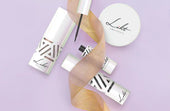
Liht Organics Black Friday: Enhance Your Beauty Routine with Vegan, Organic, and Natural Essentials!
As the holiday season approaches, there’s a sparkle in the air, and we at Liht Organics are thrilled to add a touch o...
-

Organic Makeup That Heals As It Conceals
Liht Organics Empowers Women With Only The Best For Their Beauty NeedsLiht Organics combines the best of both worlds:...
-
![[FEATURE] Liht Organics to debut at TFWA Asia Pacific show](//lihtorganics.com/cdn/shop/articles/1_1.png?v=1759328400&width=170)
[FEATURE] Liht Organics to debut at TFWA Asia Pacific show
‘Organic makeup that’s safe enough to eat’ — Liht Organics to debut at TFWA Asia Pacific show by Hannah Tan | 24 Apri...
-
![[FEATURE] The Singapore-based organic makeup brand is a first-time exhibitor at this year’s TFWA Asia Pacific Exhibition in Singapore in May 2025](//lihtorganics.com/cdn/shop/articles/2_1.png?v=1759328386&width=170)
[FEATURE] The Singapore-based organic makeup brand is a first-time exhibitor at this year’s TFWA Asia Pacific Exhibition in Singapore in May 2025
TFWA Asia Pacific preview: Liht Organics targets expansion in travel retail By DFNI Staff Writer The Singapore-bas...
-
![[FEATURE] Travel Retail Awards 2025 finalists - Best Make-up Product Color-Intense Liquid Lipstick – Liht Organics](//lihtorganics.com/cdn/shop/articles/4_e2f54f0f-fcd1-46e7-9990-fc9d29e35131.png?v=1759328382&width=170)
[FEATURE] Travel Retail Awards 2025 finalists - Best Make-up Product Color-Intense Liquid Lipstick – Liht Organics
Revealed: Travel Retail Awards 2025 finalists By Trbusiness Editor | Wednesday, 23 July 2025 15:21 TRBusiness is th...
-
![[FEATURE] Liht Organics targets expansion in travel retail](//lihtorganics.com/cdn/shop/articles/3_1.png?v=1759328346&width=170)
[FEATURE] Liht Organics targets expansion in travel retail
Organic makeup that’s safe enough to eat: Liht Organics targets expansion in travel retail By Laura Shirk Liht Organ...
-

[FEATURE] Gulf News: TikTok’s strawberry girl makeup trend: How to achieve that rosy glow inspired by Hailey Bieber
Berry, berry, strawberry, love strawberry, like BTS’s J-Hope, the band’s strawberry enthusiast once said. If only we ...
-

[FEATURE] Gulf Business Magazine : Liht-ing it up
Our founder, Nerissa Low was interviewed by Gulf Business, where she discussed her experience launching Liht, an orga...
-

[FEATURE] Daily Vanity: 11 local beauty brands owned by women – you’d be surprised how many of them started in their kitchens!
When we give a shout-out to homegrown beauty businesses, we aren’t just doing it for the sake of supporting local. Th...
-

[FEATURE] Entrepreneur ME : UAE-Based Liht Organics' Nerissa Low On Crafting An Organic Makeup Brand For The Skin-Conscious Consumer
As is the case with the origin stories of so many startups out there, Liht Organics came into being after its founder...
-
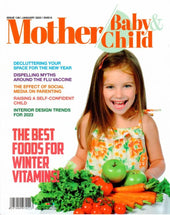
Mother, Baby & Child Editor’s Pick: Liht Organics Lights the Way
Excited to be the Mother, Baby & Child’s ‘Editors pick’ for their choice of Beauty brand.The article outlined the...
-
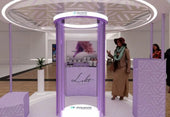
[FEATURE] EmiratesWoman - 8 Fabulous things to do in Dubai this weekend
by SARAH JOSEPHJANUARY 20, 2023Try the UAE’s first virtual reality makeup podium The popular VR-backed makeup exper...
-

Nerissa Low of Liht Organics On The Self-Care Routines & Practices Of Busy Entrepreneurs and Business Leaders
By Maria Angelova, CEO of Rebellious Intl.Date: 4 January, 2023Nerissa Low of Liht Organics On The Self-Care Routines...
-

Liht Organics: Meet the beauty brand that has caught the eye of the Royal Family of Bahrain
By Crystal Lee Digital Editor28 May 2021The world of clean beauty is, ironically, rather murky.That’s because the ter...
-

The latest luxury makeup and skincare drops, including serums, concealers, moisturisers and more
Allisa Noraini21 May, 2021It’s fine to splurge in the name of beauty. This new range of makeup and skincare drops are...
-

These SG Beauty Bosses Are Conquering The World Despite The Pandemic
First Singapore, then the US, China, Germany, Dubai, UK, South Korea, Malaysia, Hong Kong, Thailand, Australia… By...
-

Nerissa Low, Founder at Liht Organics
Written by Callum LaingPosted on December 26, 2020 10 min readNerissa Created Organic Makeup That Actually Improve...
-

Liht Organics – Makeup That Makes You
At Liht Organics, our mission is simple – to provide women (and men) with a safe experience when it comes to beauty s...
-

Why Should We Use Organic Makeup?
We cannot deny that cosmetics is one of our beauty essential item – it enhances our looks and conceals our flaws. Man...
-

Organic makeup and why your skin will love it: Liht Organics founder
By Jolene,July 27, 2020 |7 mins readOrganic make up in Singapore is a trend that is fast-catching on here as we becom...
-

[FEATURE] DC EDIT – Makeup & Confidence: Talking Self-love With Liht Organics’ Founder Nerissa Low
Makeup and confidence — the long, drawn-out fight that many of us have grappled with personally. I’m sure I’m not the...
-

[FEATURE] THE FEMALE CULTURE – I TRIED LIHT ORGANICS AND THIS IS HOW IT WENT
I’m a huge fan of makeup and I love testing out new products so I was pretty excited to get my hands on Liht Organics...
-

[FEATURE] SINGAPORE MOTHERHOOD – The Best Organic and Natural Skincare and Makeup for Pregnant and Breastfeeding Mums in Singapore
Pregnancy is a hormone-volatile period for women. One place where this makes itself seen and felt is on the skin. Som...
-

[FEATURE] AFTER CLINIC HOURS – 21 Back to Beauty Deals in Singapore (2020)
With spas and salons shuttered island wide for two months, I never thought I’d be this desperate for a good old’ Swed...
-

[FEATURE] KUL AL USRA MAGAZINE JUNE 2020
Choosing Pinks & Oranges this summer!Featured: Moisture Burst Lip Glaze in Pink Cupcake.
-
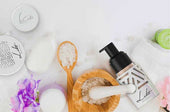
[FEATURE] Award-winning Organic Makeup Brand Liht Organics Gives Back to the Community & Environment During COVID-19
Singapore’s First Organic Makeup Brand with 100% Natural Makeup That Is Safe Enough to Eat Liht Organics promises org...
-

[FEATURE] COSMETICS DESIGN ASIA – COVID-19 ‘WAKE-UP CALL’: SINGAPORE’S LIHT ORGANICS SEES GLOBAL POTENTIAL AMID CLEAN BEAUTY CLAMOUR
Original article at: https://www.cosmeticsdesign-asia.com/Article/2020/06/26/Singapore-s-Liht-Organics-sees-globa...
-

[FEATURE] THE LIFESTYLE COLLECTIVE – BEAUTY SHOULD NEVER BE CRUEL
Date: June 24, 2020Author: Kristen Chen Liht (pronounced as light) Organics is a Singaporean organic makeup brand t...
-

[FEATURE] NÜYOU – 7 ONLINE PLATFORMS TO SHOP FOR CLEAN BEAUTY PRODUCTS
纯净美容(Clean Beauty)的美肤概念,再近几年来越来越受欢迎。随着消费者“爱自己”的美容意识逐步提升,对于用在脸上的所有物品、成分更为关注和讲究。以广义来讲,纯净美容主张使用“干净”成分和无毒配方,让肌肤的可能性损伤减到最小...
-

[FEATURE] COSMOPOLITAN MIDDLE EAST – 3 BENEFITS OF SWITCHING TO ORGANIC BEAUTY PRODUCTS THIS RAMADAN
By Cosmo – May 08, 2020Nerissa Low, founder of Liht Organics, shares the ultimate benefits of going organic this mont...
-

Nerissa Low of Liht Organics: “Seeing Light at the End of the Tunnel; 5 Reasons To Be Hopeful During this Corona Crisis”
Ely Weinschneider, Psy.D.May 8 · 9 min read …It shows us that everyone- whether we are rich or poor, regardless...
-

[FEATURE] AL MARA MAGAZINE APRIL 2020
-

[FEATURE] RetailME April 2020 – Liht Organics Stays Firm On Strengthening GCC Presence
-

[FEATURE] EMARAT AL YOUM NEWSPAPER – 27 MARCH 2020
English Translation:In spring and summer days, women love to have very light makeup in terms of color and texture, ...
-

[ARTICLE] WKND Magazine March 2020 – Know Your Organic Makeup
-

[FEATURE] AVIAMOST DUBAI – March/April 2020
English Translation:Lipstick with organic flowers. Thanks to the rich complex of natural ingredients, the lipstick...
-

[FEATURE] RUSSIAN EMIRATES (MAR/APR ISSUE)
Russian Emirates is a luxury lifestyle and fashion magazine covering information about the UAE, fashion, beauty, j...
-

[FEATURE] – KUL AL USRA MAGAZINE MARCH 2020
GET THE LOOK!
-

[FEATURE] IMAGES Retail ME – Liht Organics Announces GCC-Wide Expansion
Rupkatha Bhowmick Mar 10, 2020 The plan is to reach 75 Liht Organics retail touchpoints by June-July 2020 and touch...
-

[FEATURE] BABY & CHILD SPRING 2020 – NATURAL BEAUTIES
-

[FEATURE] AWQAT DUBAI – Liht Organics: The First Premium Organic Makeup Brand
ENGLISH TRANSLATION:Liht Organics – The First Premium Organic Makeup Brand Liht Organics, a premium organic beauty ...
-

[FEATURE] FRIDAY MAGAZINE – THE RETRO EYELINER LOOK
-

[FEATURE] MOTHER BABY & CHILD – VANITY ESSENTIALS – THE BEAUTY EDIT
-

[FEATURE] Masala! Magazine February/March 2020 Issue – Beauty Debut: Liht Organics
-

[Feature] – TimeOut Singapore – The Best Local Beauty and Skincare Brands In Singapore
For full article, click here.
-

[FEATURE] KUL AL USRA MAGAZINE – LIHT UP YOUR WORLD WITH LIHT ORGANICS
[ENGLISH TRANSLATION]Liht Up Your World With Liht OrganicsThe First Premium Organic Makeup Brand To Debut In The Mi...
-

[FEATURE] SINGAPORE TATLER – 9 Local Beauty Brands You Should Know Of
-

[FEATURE] nüyou August 2019 Issue – 15 Faces To Watch
-

[FEATURE] HONEYCOMBERS – Local Beauty Gurus: Singapore Beauty Brands You Need To Know About
-

[FEATURE] The Wellness Insider – Seeing The Liht With Founder Nerissa Low
-

[FEATURE] 联合早报 (LianHeZaoBao) – Women Entrepreneur Awards 2019 Coverage
-

[FEATURE] THE STRAITS TIMES Life – Clean beauty with a Singapore heart
-

Romantic Organic Makeup Looks for Valentine's Day: Tips, Tricks, and Product Picks
Valentine's Day is the perfect occasion to embrace the beauty of organic makeup. At Liht Organics, we believe in the ...
-
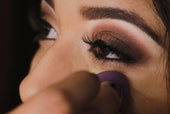
Enhance Your Eyes: A Guide to Eyeliner for Every Eye Shape with Liht Organics
Welcome to the Liht Organics blog, where we believe in celebrating the natural beauty of every eye shape. Today, we'r...
-
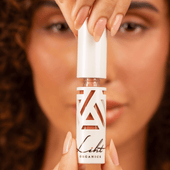
How to do makeup with only lipstick?
At Liht Organics, we believe in the power of clean beauty and the artistry of makeup. Makeup is more than just enhanc...
-

How to Clean Your Makeup Brushes in 6 Simple Steps
Cleaning your makeup brushes may seem like a tedious task, but it's an essential part of your beauty routine. Not onl...
-

Makeup Tips to Help You Look Your Most Flattering on Virtual Meetings!
After more than 2 years of work-from-home arrangement, and possibly hundreds of zoom calls and Google meet virtual me...
-
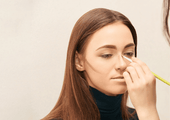
Learn How to Contour with This Simple Guide for Beginners
Want to take your makeup to the next level? Try contouring to achieve a more defined or sculpted look à la the Kardas...
-
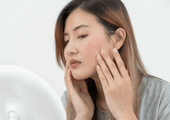
Essential and Easy Makeup Tips for Sensitive Skin
Living with sensitive skin conditions like eczema, psoriasis, and more is already not an easy feat. Throw in makeup t...
-
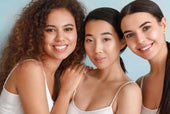
Raising Your Vibration: A Liht Organics Guide for Empowerment This International Women's Day
wp:paragraph As International Women's Day (IWD) approaches, it serves as a powerful reminder of the journey towards s...
-

The Beauty of Going Bare: Why Sleeping with Makeup is a No-No
Have you ever had one of those nights where you're too tired to clean off your makeup? You might believe, "Skipping...
-

Breast Cancer Awareness: Empower Your Beauty with Liht Organics Makeup
During October, we observe Breast Cancer Awareness Month as a way to unite and bring attention to breast cancer whil...
-

The Hidden Dangers of Carmine in Makeup Colorants: Embracing Healthier and Vegan Options
Makeup has become an integral part of our daily routines, allowing us to express our unique beauty. However, as we pr...
-

How can I ensure that my makeup products are organic and won't harm my skin?
When it comes to makeup, it’s important to be mindful of what you’re putting on your skin. With so many products on t...
-
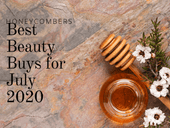
[FEATURE] HONEYCOMBERS – BEST BEAUTY BUYS IN JULY
by Nicole NithiyahWhat’s hot in our beauty hit list: Honest thoughts and top beauty stories we’re swooning over. As w...
-

Liht Organics Introduces Exclusive Gift Sets: Enhance Your Beauty This Festive Season!
As the holiday season approaches and the year draws to a close, Liht Organics is thrilled to present two enchanting g...
-

Get Spooktacular with the Best Halloween Makeup Ideas using Liht Organics' All-Natural, Vegan, and Cruelty-Free Cosmetics!
With Halloween just around the corner, it’s time to let your creativity shine and transform yourself into a spooky,...
-

Celebrating World Animal Day with Liht Organics: Embracing Natural Cruelty-Free Makeup
wp:paragraph As we observe World Animal Day, the team at Liht Organics takes great pride in honoring our pledge to...
-
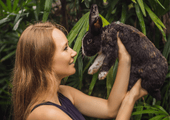
Reasons Why You Should Choose Cruelty-Free Cosmetics Instead!
With increasing exposés unveiling the ugly truth behind animal testing that goes on in the beauty industry, it is lit...
-
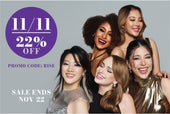
Celebrate Singles Day with Makeup That Empowers – 22% Off at LIHT Organics!
This Singles Day, treat yourself to beauty that goes beyond skin-deep. At LIHT Organics, we believe makeup is about s...
-

Preparing for the Cozy Beauty of Autumn: A Preview of Your Fall Look
As we bid farewell to the warm, sun-kissed days of summer, it’s never too early to start dreaming about the enchantin...
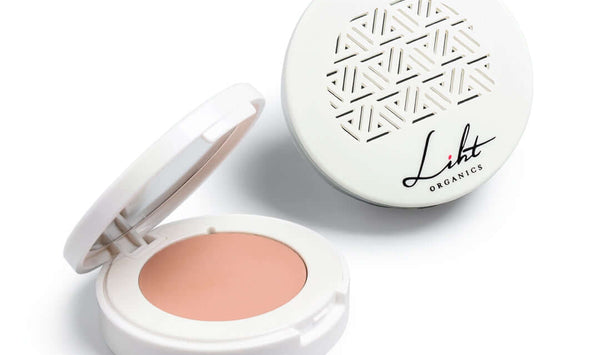
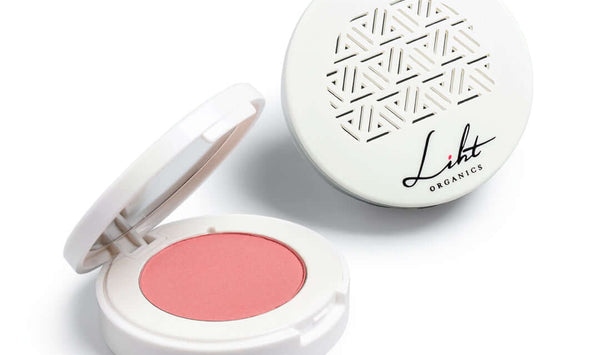
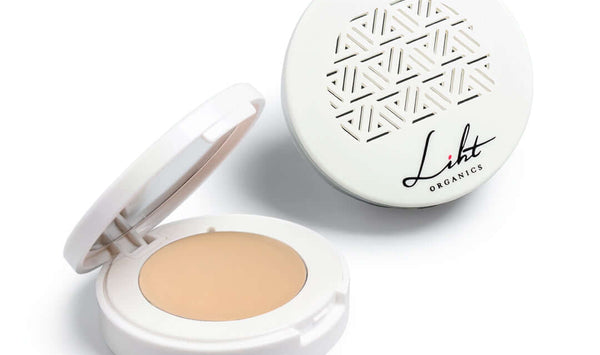
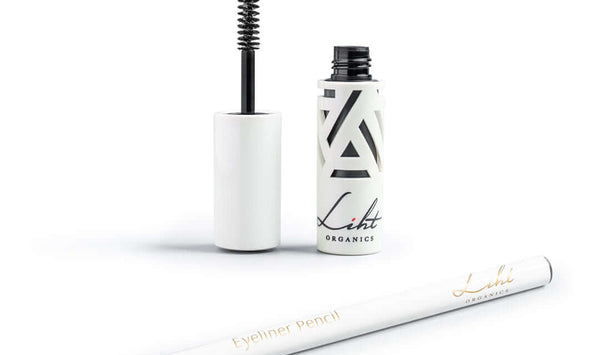
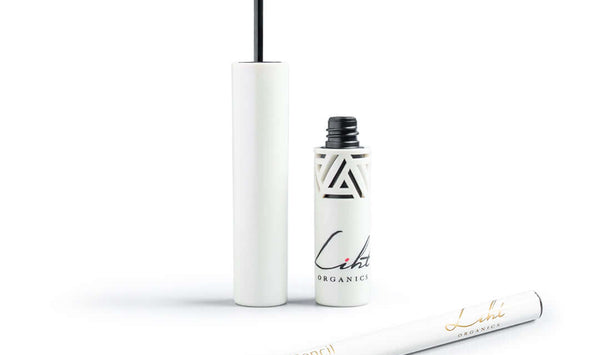
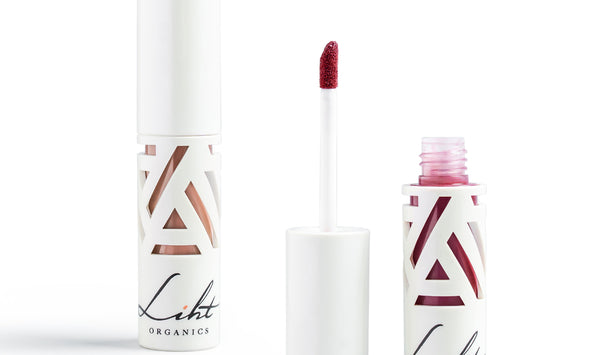
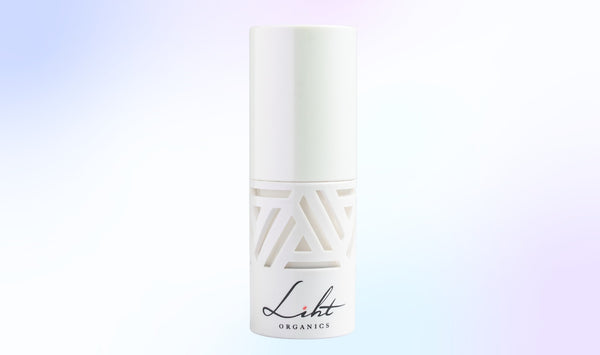
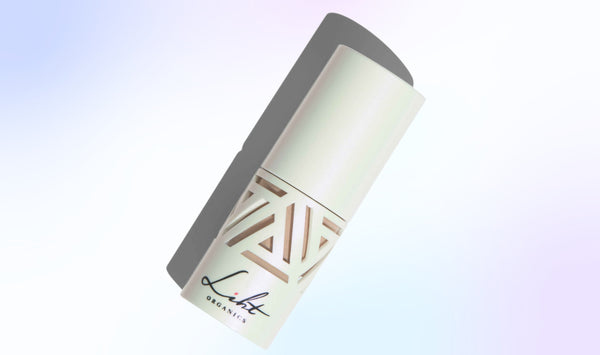
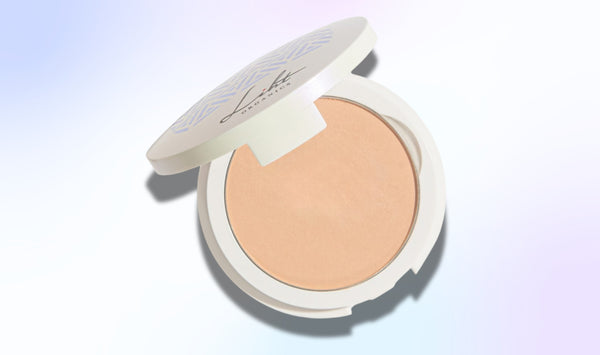
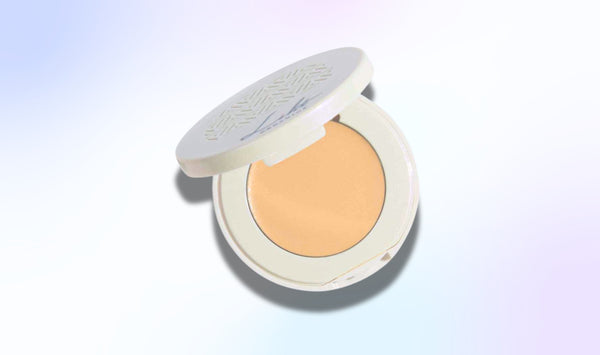
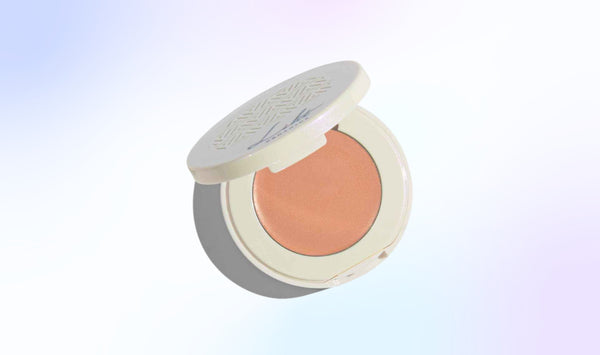
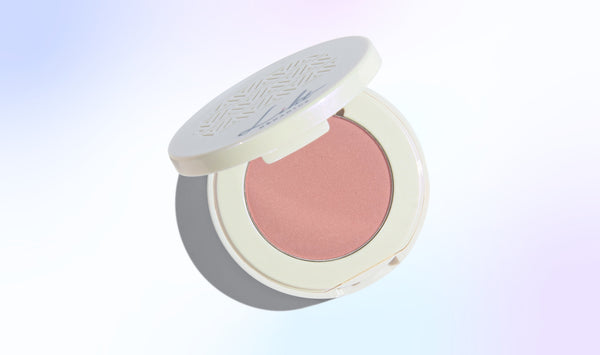
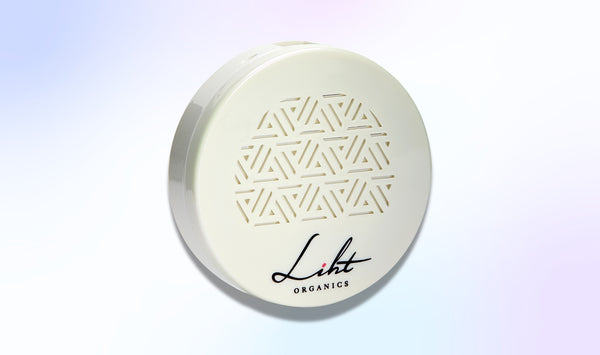
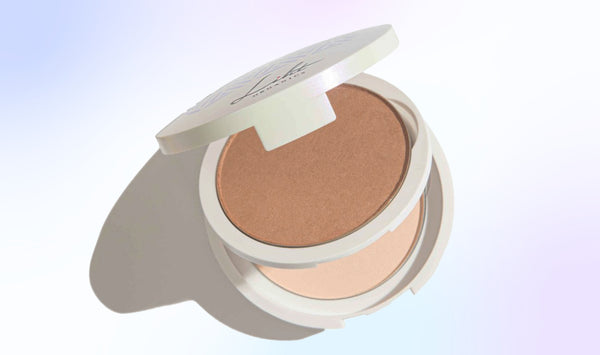
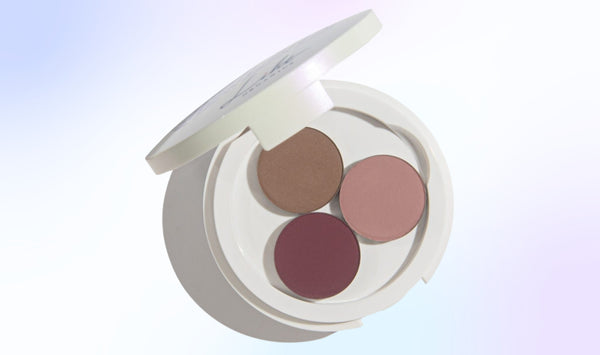
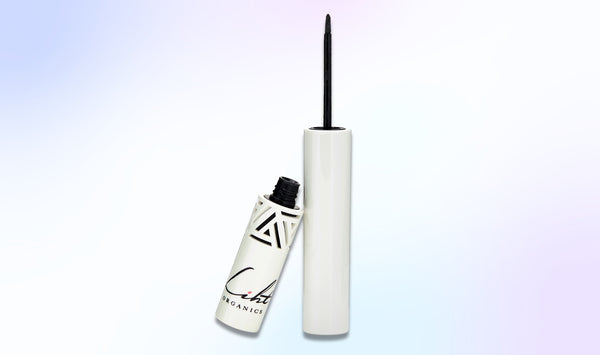
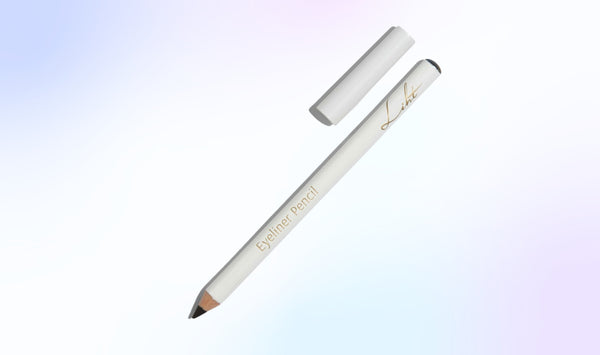
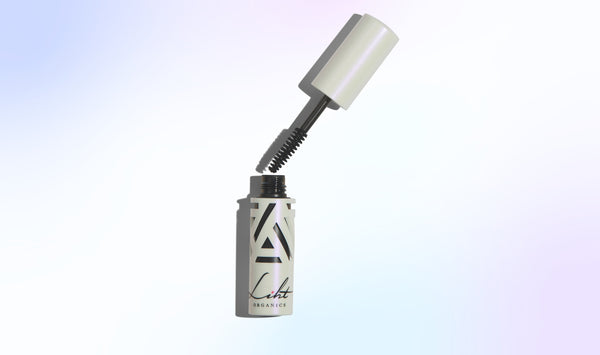
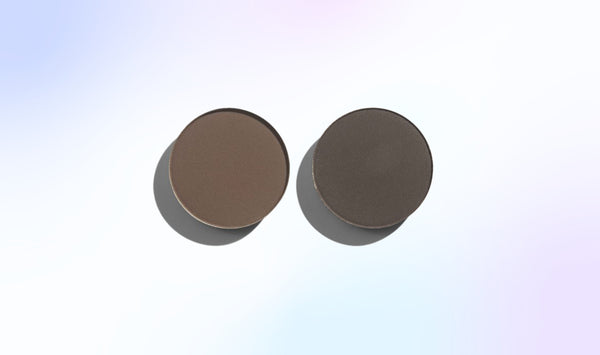
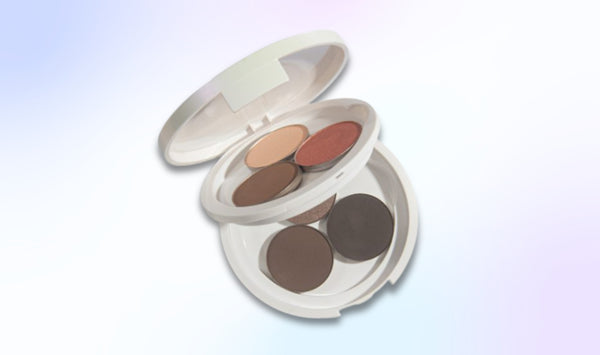
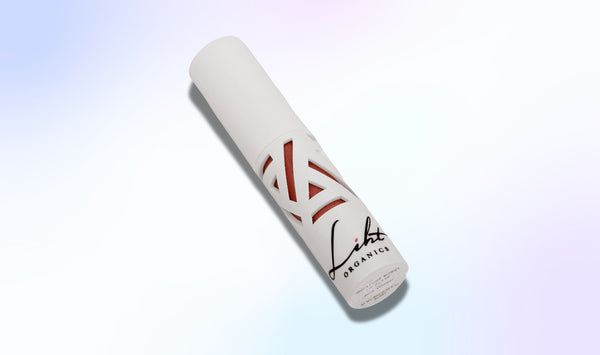
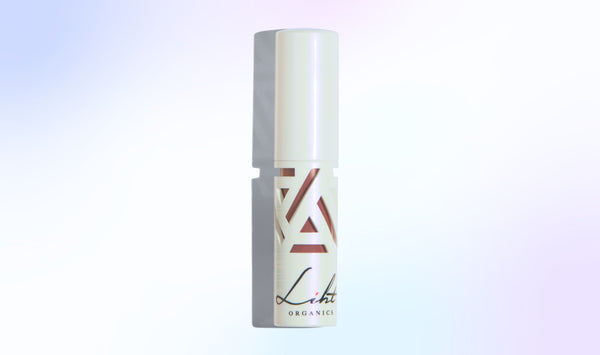
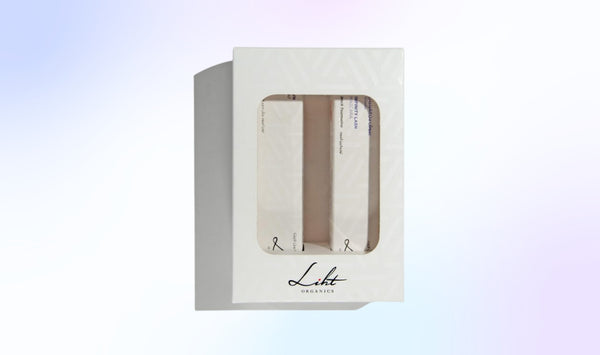
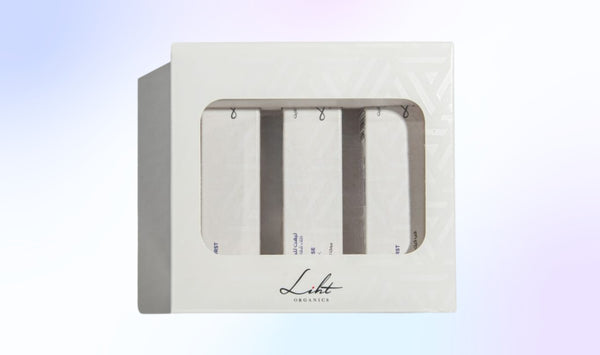
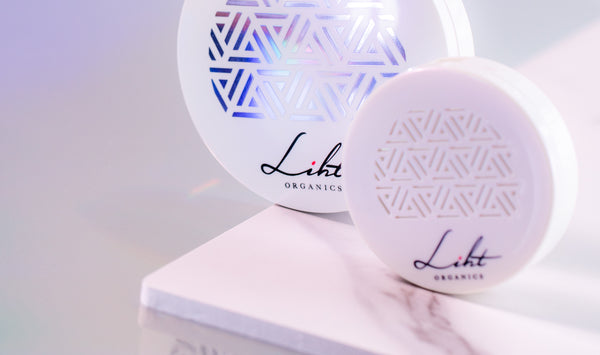
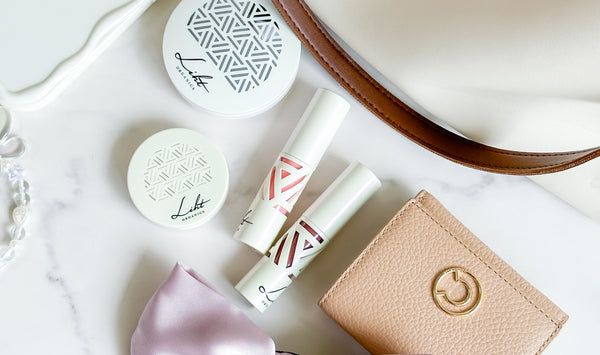
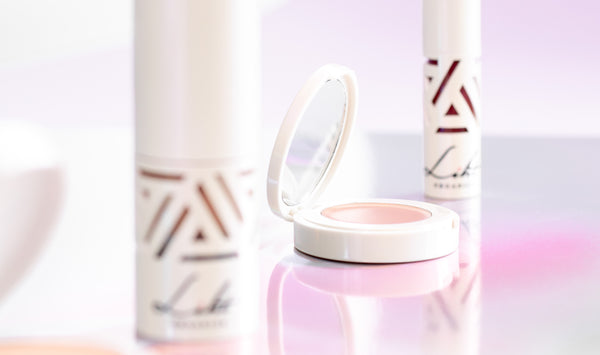




![[FEATURE] Liht Organics to debut at TFWA Asia Pacific show](http://lihtorganics.com/cdn/shop/articles/1_1.png?v=1759328400&width=170)
![[FEATURE] The Singapore-based organic makeup brand is a first-time exhibitor at this year’s TFWA Asia Pacific Exhibition in Singapore in May 2025](http://lihtorganics.com/cdn/shop/articles/2_1.png?v=1759328386&width=170)
![[FEATURE] Travel Retail Awards 2025 finalists - Best Make-up Product Color-Intense Liquid Lipstick – Liht Organics](http://lihtorganics.com/cdn/shop/articles/4_e2f54f0f-fcd1-46e7-9990-fc9d29e35131.png?v=1759328382&width=170)
![[FEATURE] Liht Organics targets expansion in travel retail](http://lihtorganics.com/cdn/shop/articles/3_1.png?v=1759328346&width=170)
































































